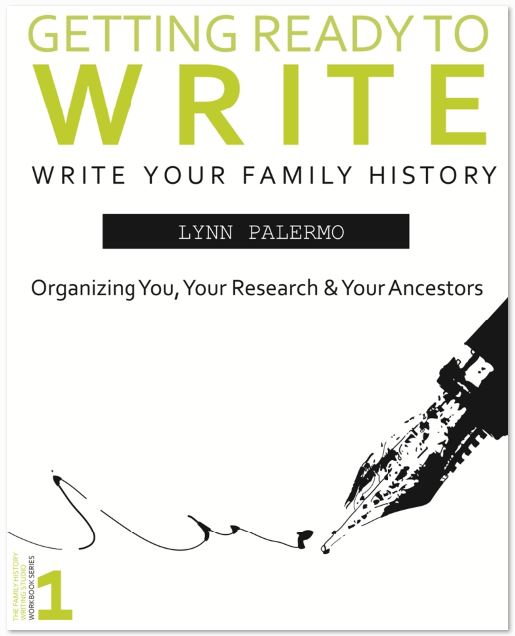Family historians are often contemplating what they will do with the copious amounts of research they have accumulated over the years. No question, writing stories is often the end goal. However, by the time most genealogists begin thinking about writing they are completely overwhelmed by the size of the task. Too many times I’ve heard the words…”maybe some day.”
If this sounds like you then consider joining me in The Family History Writing Challenge, we can overcome this obstacle and all the other excuses that are preventing you from beginning.
- There’s never going to be the perfect time.
There will always be obstacles. Life will get in the way and waiting for the perfect time will never happen. The Family History Writing Challenge will help you to structure writing to be a regular part of your life.
You can wait for the perfect time, when there are no distractions. But, let’s be honest that will never occur. However, by investing in as little as 15 minutes a day or by setting a daily word count, like 500 words a day you can meet your goals. Can you find 15 minutes in your schedule? I’m certain you can.
2. There is so much to learn from the journey.
Often family historians are reluctant to make the transition because they don’t consider themselves writers. No one is born a writer. Writing is a process, a learned skill that improves with practice. By diving in, you learn the habits and the environment that is conducive to helping you write, along with the necessary skills.
You learn to write family history by writing. (Tweet this!)
Often family historians are reluctant to make the transition because they don’t consider themselves writers. No one is born a writer. Writing is a process, a learned skill that improves with practice. By diving in, you learn the habits and the environment that is conducive to helping you write, along with the necessary skills.
Regardless of whether it is creative nonfiction that we cover in The Challenge or another genre you care to write about, you can’t learn, understand and perfect these skills without practicing them…that means writing.
- You can research and write at the same time.
Taking up the task of writing your family history doesn’t mean your research comes to an end. Throw out that excuse because we all know that your research will never be done, and you can’t wait until it is to start. There are many great stories waiting within your research right now. Start with one ancestor, one story, start small and simple.
Schedule your research and writing as two separate tasks. When you write a story you’ll find opportunities when perhaps a little more research is required. That’s great. Make a note and keep writing. During your designated research time, turn to your list. Don’t allow your research and writing time to cross.
- You want to write engaging stories.
The Family History Writing Challenge focuses on the tools of creative nonfiction. Turn your dry narratives into engaging stories that your family wants to read. The Daily Dose newsletter is delivered to your inbox for 28 days through the month of February. You’ll learn characterization, plotting, showing and telling, turning facts into scenes and description and detail. You’ll discover all the elements which make an entertaining nonfiction narrative.
In the 28-days of The Challenge, you’ll find your focus. You’ll make writing a priority in your life, and the knowledge and inspiration you’ll learn during our month together will result in a growth experience in a short amount of time. We also have expert authors joining us to add their depth of knowledge. If you venture into the Writer’s Forum, you’ll also learn to give and receive critique and elevate your writing to a new level.
Start getting organized to write your stories with our Getting Ready to Write workbook. Perfect for the first time writer who just doesn’t know where to start and needs some guidance in identifying the kind of story they want to write, setting up a workflow and creating sustainable writing habits.


